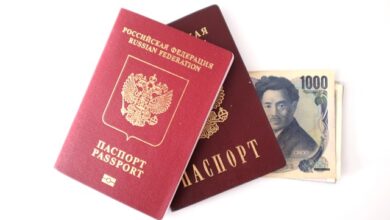How Brexit Affects UK Citizens Living in France

The United Kingdom’s decision to leave the European Union, commonly referred to as Brexit , has had profound implications for UK citizens living across Europe, including those residing in France. Since the UK officially left the EU on January 31, 2020, and the transition period ended on December 31, 2020, many aspects of daily life for British expatriates in France have changed. From residency rights and healthcare access to taxation and travel, Brexit has introduced new challenges and uncertainties. In this article, we’ll explore how Brexit impacts UK citizens living in France and provide practical advice for navigating these changes.
1. Residency Rights
a. Pre-Settled and Settled Status
- Withdrawal Agreement Protections: Under the EU-UK Withdrawal Agreement , UK citizens who were legally residing in France before December 31, 2020, retain their rights to live, work, and access benefits in France. However, they must apply for a “Titre de Séjour” (Residence Permit) to formalize their status.
- Types of Permits:
- Carte de Résident (Residence Card): For those who have lived in France for more than five years.
- Carte de Résident Temporaire (Temporary Residence Card): For those with less than five years of residency.
- These permits are valid for 10 years and can be renewed.
b. Application Process
- UK citizens must submit an application to their local Préfecture or Sous-Préfecture . Required documents typically include proof of identity, proof of address, evidence of income or financial stability, and health insurance coverage.
- Delays and administrative hurdles have been reported, so it’s crucial to apply as early as possible.
c. Post-Brexit Arrivals
- UK citizens moving to France after January 1, 2021, no longer benefit from freedom of movement. They must follow the same immigration procedures as non-EU nationals, which often involve stricter requirements such as visa applications and proof of employment or sufficient financial resources.
2. Healthcare Access
a. Reciprocal Healthcare Agreements
- Prior to Brexit, UK citizens in France could access healthcare through the European Health Insurance Card (EHIC) system. While the EHIC is no longer valid for UK citizens, a new UK-France Social Security Agreement ensures continued access to healthcare for eligible individuals.
- To qualify, you must register with the French social security system (CPAM ) and obtain a S1 form if you’re a pensioner or receiving certain UK benefits.
b. Private Health Insurance
- For those not covered by the agreement, private health insurance may be necessary. This can be expensive, so it’s important to budget accordingly.
c. Cross-Border Healthcare
- Traveling between the UK and France for medical treatment now requires prior authorization under the new agreement. Always check eligibility before scheduling appointments.
3. Work and Employment
a. Working Rights
- UK citizens already residing in France before the end of the transition period retain their right to work under the Withdrawal Agreement. However, post-Brexit arrivals face additional barriers, including the need for work permits or visas.
b. Recognition of Qualifications
- Professional qualifications obtained in the UK may no longer be automatically recognized in France. Individuals working in regulated professions (e.g., healthcare, law, teaching) should contact relevant French authorities to verify recognition and any required certifications.
c. Remote Work
- With the rise of remote work, some UK citizens choose to work for UK-based employers while living in France. Be aware of tax implications, as France may claim tax residency based on time spent in the country.
4. Taxation and Financial Implications
a. Double Taxation
- The UK and France have a double taxation treaty to prevent individuals from being taxed twice on the same income. However, understanding your tax obligations in both countries is essential, especially if you earn income in multiple jurisdictions.
b. Pension Payments
- UK state pensions continue to be paid to retirees living in France. However, annual increases to pensions are no longer guaranteed for UK citizens living in the EU post-Brexit unless specific agreements are reached.
c. Banking and Currency
- Some UK banks have restricted services for customers living abroad, leading to account closures or limited access to banking products. Additionally, fluctuations in the GBP/EUR exchange rate can impact purchasing power and savings.
5. Travel Between the UK and France
a. Passport Requirements
- UK citizens must ensure their passports are valid for at least six months beyond their planned departure date from the Schengen Area. Emergency travel documents may be required in case of lost or stolen passports.
b. Visa-Free Travel
- UK citizens can visit France and other Schengen countries for up to 90 days within any 180-day period without a visa. Longer stays require a long-stay visa or residence permit.
c. Customs and Duty
- New customs checks mean travelers must declare goods exceeding duty-free allowances. Pets traveling between the UK and France also require updated documentation, including microchip identification and health certificates.
6. Education and Family Considerations
a. Children’s Education
- UK citizens with children in French schools generally face no immediate changes. However, future policies regarding tuition fees for non-EU students could affect higher education opportunities.
b. Family Reunification
- Bringing family members to join you in France has become more complicated post-Brexit. Spouses, children, and dependent relatives may need to apply for visas, even if they are UK citizens.
7. Cultural and Social Integration
a. Language Proficiency
- While English is widely spoken in tourist areas, proficiency in French has become increasingly important for navigating bureaucracy, accessing services, and integrating into local communities.
b. Community Support
- Many UK citizens in France have formed support groups and associations to share information and advocate for their rights. Joining these networks can provide valuable guidance and emotional support.
8. Practical Advice for UK Citizens in France
- Stay Informed: Regularly check updates from official sources such as the UK government , the French Ministry of the Interior , and British Embassy in Paris .
- Seek Legal Advice: Consult immigration lawyers or experts specializing in post-Brexit regulations if you encounter difficulties.
- Plan Ahead: Address potential issues like healthcare, pensions, and travel arrangements well in advance to avoid disruptions.
- Engage Locally: Build relationships with neighbors, participate in community events, and embrace French culture to foster a sense of belonging.



